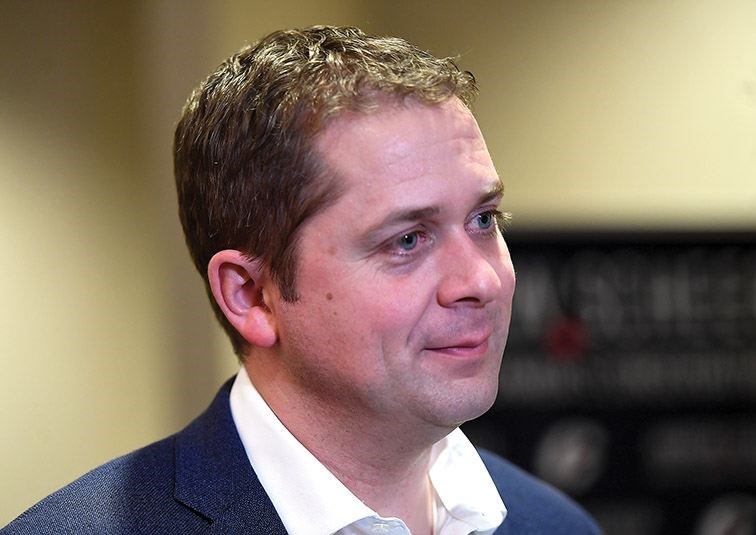Conservative leader Andrew Scheer stuck to the script when it came to talking about guns in an interview with The Citizen during his visit to Prince George Monday.
That means he didn't answer the question.
When asked about how his party proposes to bridge the gap between rural and urban Canadians when it comes to guns - perhaps the single greatest issue which divides people living in cities from those living in small towns - Scheer talked about avoiding "symbolic gestures." He stressed that "it's easy to talk about banning guns but that's lazy government." If he were prime minister, he'd target criminals, a proposal he laid out a day later in more detail at an event in Delta. A Conservative government would throw the book at gang members and repeat and violent offenders who used guns to commit crimes, sending them to jail for longer and making it harder for them to get out.
That's actually lazy policy because it does nothing to prevent gun offences. Tough talk about longer jail time is red meat for the conservative base but it doesn't offer much for the residents of Toronto hoping not to see another mass shooting like the one in July that left two dead and 13 wounded.
Gun owners want safety and strict licensing, too, Scheer added Monday. Except that's not what people in Canadian cities largely want, based on various opinion polls.
They want what Prince George-Peace River-Northern Rockies MP Bob Zimmer, many other members of Scheer's caucus and diehard rural Conservatives won't give up until it is snatched from their cold, dead hands: an outright ban on guns.
Yet Scheer, a young MP from Regina, is perfectly positioned to offer an innovative Canadian solution on firearms, one that would appease hunters, gun enthusiasts and his rural supporters while also enticing police forces and urban residents.
Since the vast majority of crimes involving firearms are committed with handguns while rifles are the weapon of choice on farms and in the bush, the solution seems obvious. Ban owning handguns for everyone except competitive shooters and ban all rifles and modifications too powerful or unnecessary for game hunting. Also ban any kind of formal national long gun registry, any sales restrictions to adults and all licensing and collection of personal data of gun owners.
Criminals want handguns because they're small and easy to conceal, so take them off the market. Hunters and rural residents want rifles and shotguns to put meat in the freezer and scare off predators from livestock, so let them have easy access to as many non-restricted firearms as they feel they need, without Big Brother standing over their shoulder.
Both sides get what they want or both sides are unhappy with the compromise, depending on their flexibility.
Either way, this is the kind of pragmatic, problem-solving small-c conservatism that most moderate Canadians would like to see but are far too rarely offered at election time.
Scheer may feel he's not in a position to offer such a bold suggestion, one that so blatantly strays from traditional Conservative thought, having won the leadership last year by such a narrow margin. On the contrary, he should be emboldened to seize hold of the agenda, especially now that Maxime Bernier has bolted from the party and taken a handful of hard-liners with him.
With a federal election less than a year away, Scheer needs some daring planks on his party's platform, suggestions that put the Liberals and the NDP on the defensive, much as Justin Trudeau's promises to legalize marijuana and physician-assisted dying did to Stephen Harper and Tom Mulcair.
Guns would be a good place to start.
That and actually answering the question put to him in an interview.
-- Editor-in-chief Neil Godbout



